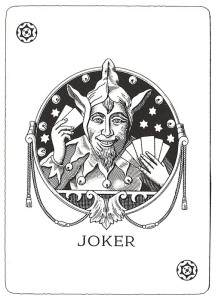The reluctant kingmakers?
This week has been marked by the publication of a major report regarding the future composition of the European Parliament. Director Yves Bertoncini and Research Fellow Valentin Kreilinger at Notre Europe have provided an in-depth study of the potential electoral results in the member states that are susceptible to shift the majorities in the next Parliament.

They have called them the EU ‘swing states’, a well-founded analogy with some of the big voting states in the USA during the presidential elections.
The European swing states
| MEMBER STATE | GE | FR | UK | IT | ES | PL | RO | NL | TOTAL (EU28) |
| MEPS | 96 | 74 | 73 | 73 | 54 | 51 | 32 | 26 | 479 (751) |
The authors have built their electoral projections by putting together all the polls which are currently available[1].
Still, those polls have to be approached with special caution. Not only because they are surveys – and as such they will always be subject to some unexpected ‘reality-check’, but because the element that makes this election different is only starting to emerge.
In May 2014 the main European parties are nominating a candidate for the presidency of the European Commission. Some parties are just initiating the process; others will only nominate their frontrunner in March. In that sense, those polls cannot yet take into account the personalities that will be put forward. If the political face-to-face takes finally place (with a debate, with transnational campaigns, etc…) it can be a genuine game-changer.
Bearing in mind this point, the report does indicate an overall tendency that in my perspective is extremely promising: the role of UK MEPs as kingmakers. The same country that might be organising a referendum about its EU membership is the one that is likely to have the keys to unlock the 8th European Parliament.
a) The S&D group
According to Graph nº6 below, in the forecast made by Notre Europe, Labour MEPs will be the most important delegation in the S&D family. Taking the hypothesis that the two major groups arrive head to head at the finish line, the results of the Labour Party seem crucial. This is even more relevant, considering that the Labour has nurtured a ‘not-so-definitive’ ’ position in the referendum debate, which adds to the fact that the Labour Party has been one of the few national parties not nominating Martin Schulz during the curious system of ‘primary-designation’.
How would the Labour exert such reinvigorated power in Europe? Would the next S&D group dilute some of the historical French and English hesitancy towards European political integration? And how would the British delegation feel about electing Martin Schulz, a convinced federalist, as head of the new Commission?
Composition of the S&D group: 2009 results and 2014 estimations from the 8 “swing states” “Socialists”

b) The curious case of the Conservatives
If the prospective of having the reluctant Laborites leading the S&D is counterintuitive enough, the future scenario for the Tory delegation is even more bizarre.
Again, with the hypothesis of the two groups having similar results, the liberals and the British Conservatives would have the tricky privilege of being kingmakers. The Conservatives have been enjoying their own parliamentary group for some years now but they have lost the power to influence decisively the main party group in the EP.
Would the Conservatives be ready to make an historical trade-off regarding for example the candidate to succeed Van Rompuy (Enda Kenny?) in exchange of returning to the EPP group?
Would they be ready to form a center-right coalition? Which would be their policy demands?
Projections of coalitions (estimations provided by Notre Europe)
| TOTAL MEPs | |||||||
|---|---|---|---|---|---|---|---|
| Grand Coalition | EPP (209) | S&D (213) | 422 (56%) | ||||
| Grand Coalition + | EPP (209) | S&D (213) | ALDE (62) | 484 (64%) | |||
| Center Left | S&D (213) | ALDE (62) | Greens (38) | GUE (47) | 360 (48%) | ||
| Center Right | EPP (209) | ALDE (62) | ECR (61) | 332 (44%) |
(based on the estimations quoted in p.24 (Source: ‘Data on 2009: European Parliament, Graph and Calculations: Yves Bertoncini and Valentin Kreilinger’, p.12 (consulted 03.12.13: http://www.notre-europe.eu/media/balanceofpowerep2014bertoncinikreilingerne-jdinov2013.pdf?pdf=ok)
There is also, of course, the role of the UKIP. The third ‘kingmaker’ coming from the UK. They are, together with the FN, the ones that can multiply by two the populist vague in the European Parliament. Nigel Farage would have to make some decisions if Marine Le Pen succeeded in forming a new radical parliamentary group. He says no. But considering the rates of voting cohesion amount his peers in the EP, it is reasonable not to take his word for granted.
c) All in
All in all, the British constituents might be headed to play a much central and bigger role in Europe than they imagine.
As the rest of EU citizens, they are electing a new Parliament, with increased and very substantial powers. They are electing the next President of the Commission, which is not a drop in the ocean considering the Commission has the power of legislative initiative. They should be ready to lead.
After all, 2014 is not 2017. Not yet.
Dídac Gutiérrez-Peris
[1] The full list: France: Ifop/Nouvel Observateur (October 2013 and May 2013); Germany: Forschungsgruppe Wahlen, EMNID, Infratest dimap, Forsa (between 7/11/2013 and 13/11/2013); ); Italy: 14-day-average (retrieved 15/11/2013); Poland: CBOS (retrieved 13/11/2013); Romania: CSCI (October 2013); Spain: Celeste-Tel, Invymark, My Word, DYM (retrieved 15/11/2013); UK: Survation/Mail on Sunday (October 2013).